Kyla Pratt and EJ Johnson on Living Loud and Proud
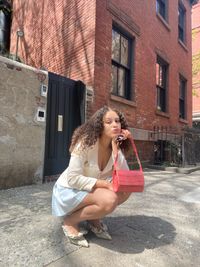
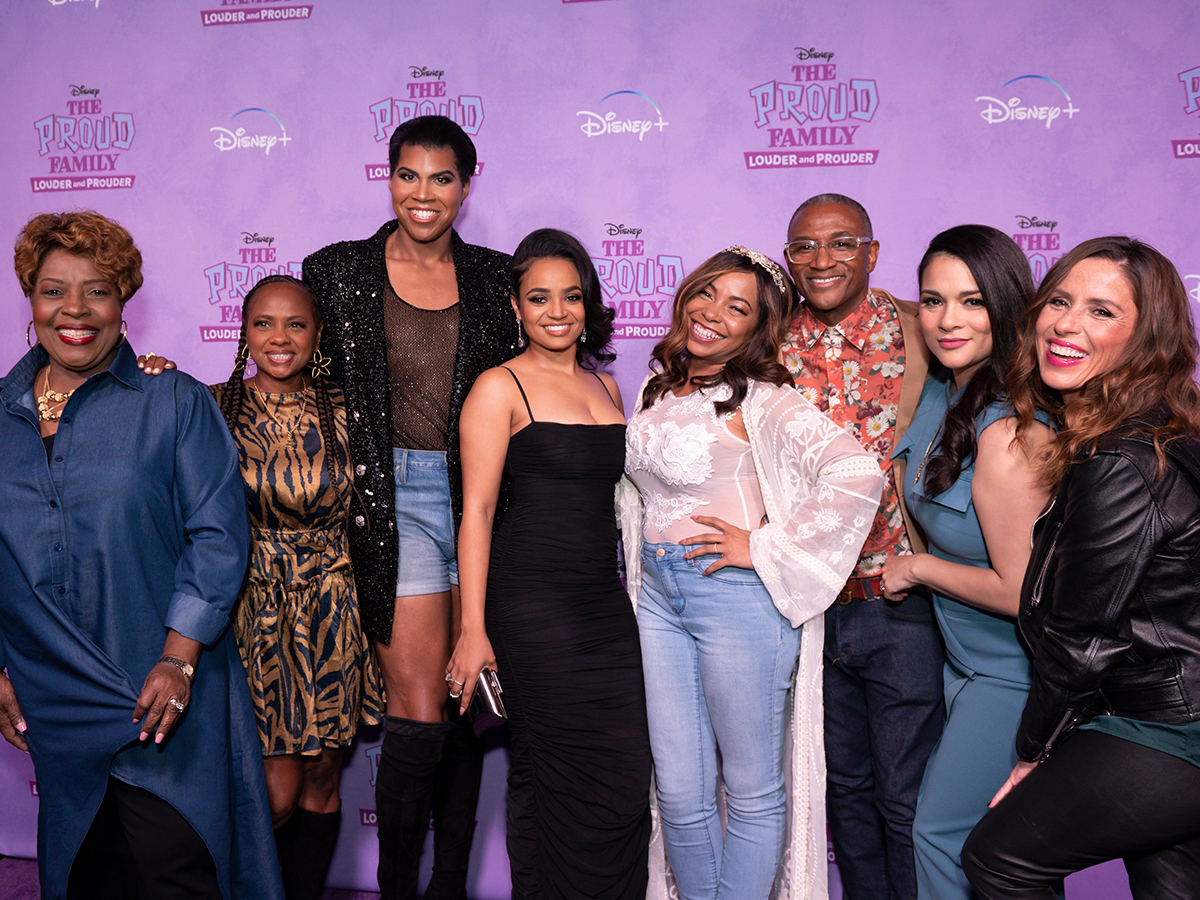
Allow us to take you down memory lane. When you were younger, can you recall a moment you felt seen? Maybe it was when you got to wear exactly what you wanted to school, or perhaps it was when you watched a cartoon and identified with a character for the first time. The arts have always held the unique power to give individuals a means of expression and show the full breadth of humanity. And no other children’s series has done that like The Proud Family. It goes without saying that the Disney animated series was iconic in its own right. It was the first cartoon from the network to follow the lives of an unapologetically Black family as they navigated the world. And while representation at this moment in time feels as if it’s been a part of the cultural conversation forever, when this series aired in 2001, that wasn’t the case. Few characters, much less animated characters, explored the Black diaspora. In many ways, this series pushed the culture forward through teenage protagonist Penny Proud and her boisterous family’s representation of domestic life, religion, and race.
Considering how iconic this series became, it was only a matter of time before a reboot was in order, one that we welcome wholeheartedly. In February, the first episode of The Proud Family: Louder and Prouder was released on Disney+ with a star-studded cast, including Keke Palmer and Billy Porter. So when offered the opportunity to speak with the cast about the reboot, we clearly jumped at the chance. Ahead, you’ll hear from Kyla Pratt (aka Penny Proud) and EJ Johnson (aka Michael Collins) on why this reboot is more critical than ever, their careers, and what living loud and proud means to them.
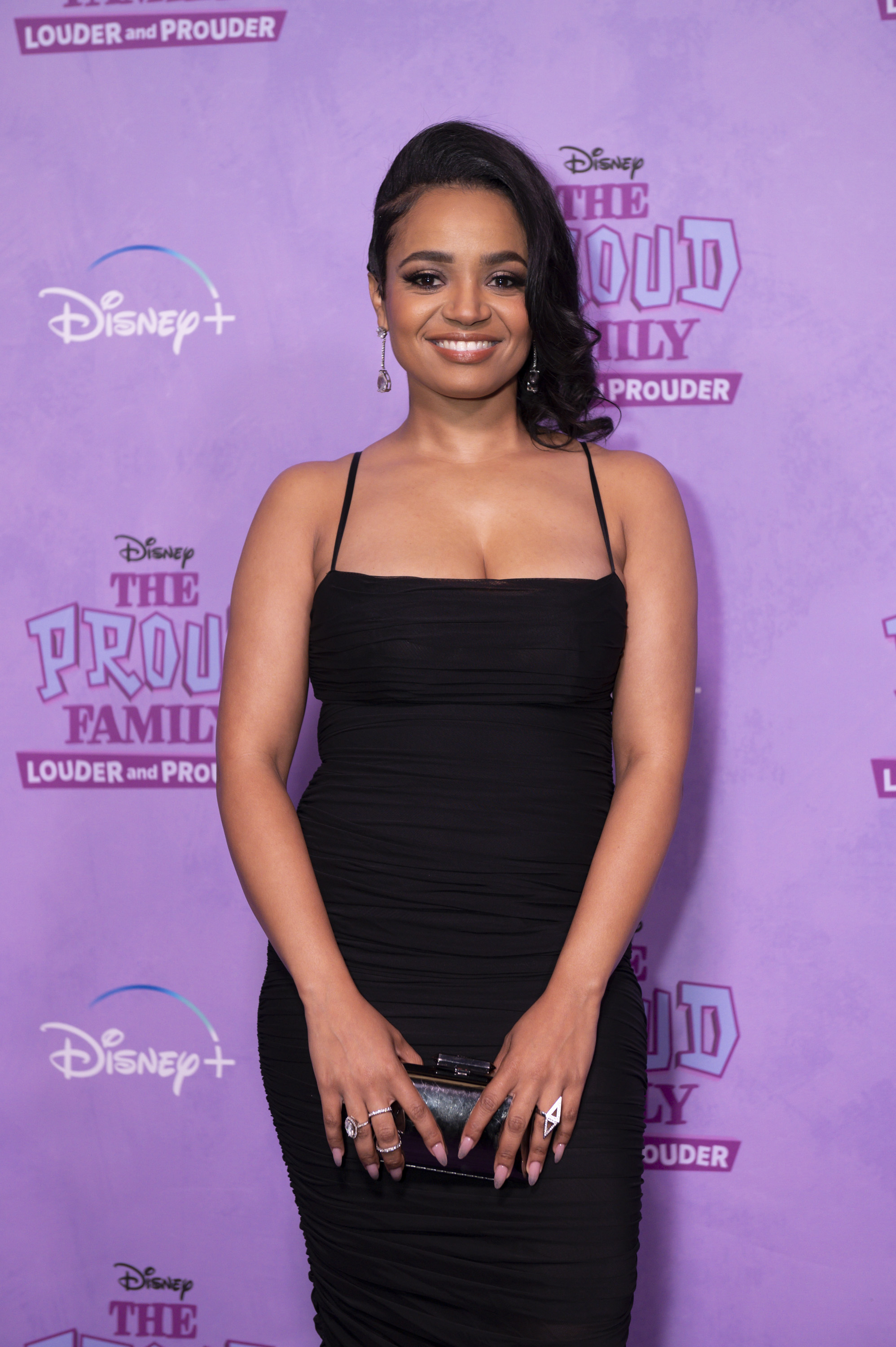
Since you were 8 years old, you’ve been in the entertainment industry. What do you feel you’ve learned about yourself through your career?
Kyla Pratt: I’ve been doing it for a living since I was a young girl, and in many ways, I’ve become the woman I am today because of it. For me, it was an extracurricular activity. It was a hobby. When other kids played sports, my after-school thing was going on auditions. And as I got older, I started to look at this as a business and realized that I maintained a love for this craft.
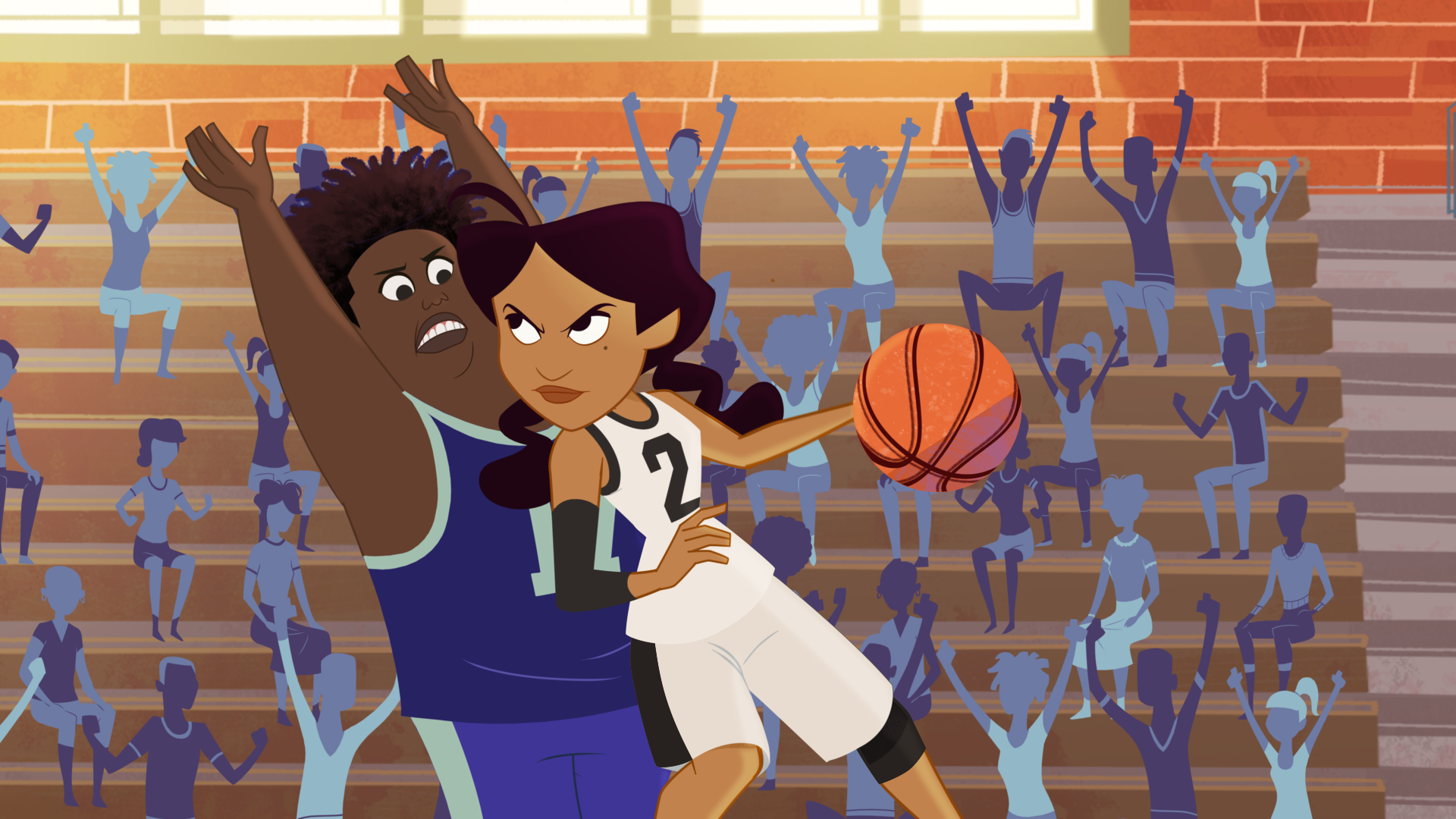
Looking back, you’ve been a part of some incredibly influential shows and films in Black media. What does it mean for you to be embedded in the culture, and what do you hope your legacy will be as an artist?
KP: It’s a fantastic feeling to be a part of so many iconic projects that are still cared about to this day, and it’s even more remarkable because it wasn’t planned. It was like, "Hey, I have an audition after school. Let’s see how this role fits.” And then, starring as an 11-year-old tomboy in films like Love and Basketball or working with a legend like Eddie Murphy at such a young age is incredible. I’ve been very fortunate to work with some pretty amazing people.
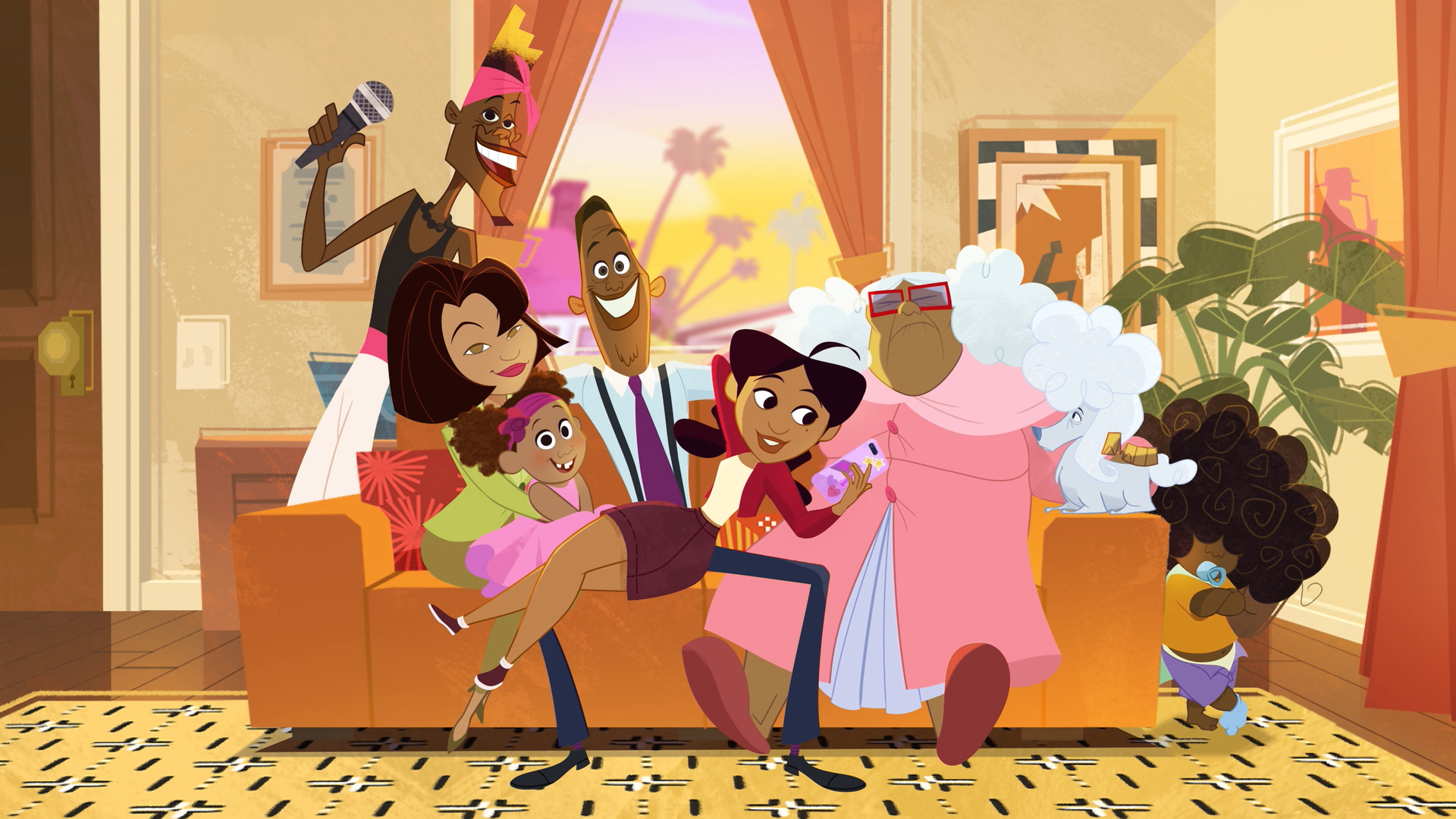
You are a mother now. How has working on The Proud Family reboot shaped how you view the show?
KP: It’s crazy because now I can see things from everyone else’s perspective. I was only a teenager when I was filming The Proud Family, so certain jokes in the script or even wider importance of the show wasn’t something I realized until later on. But now, as a mother, I can from Trudy’s perspective and Penny’s perspective. I can see every character’s perspective, and I can see how others see this series. Nothing is more special than having people come up to me and tell me how much this show was an essential part of their childhood. They can see themselves in this series, and that’s what I love about this show. It’s so unapologetically Black. That’s what’s exciting about the reboot—to keep that representation of different generations and the full spectrum of Blackness that will be relatable to kids nowadays and nostalgic enough for the inner kid in the older generations too.
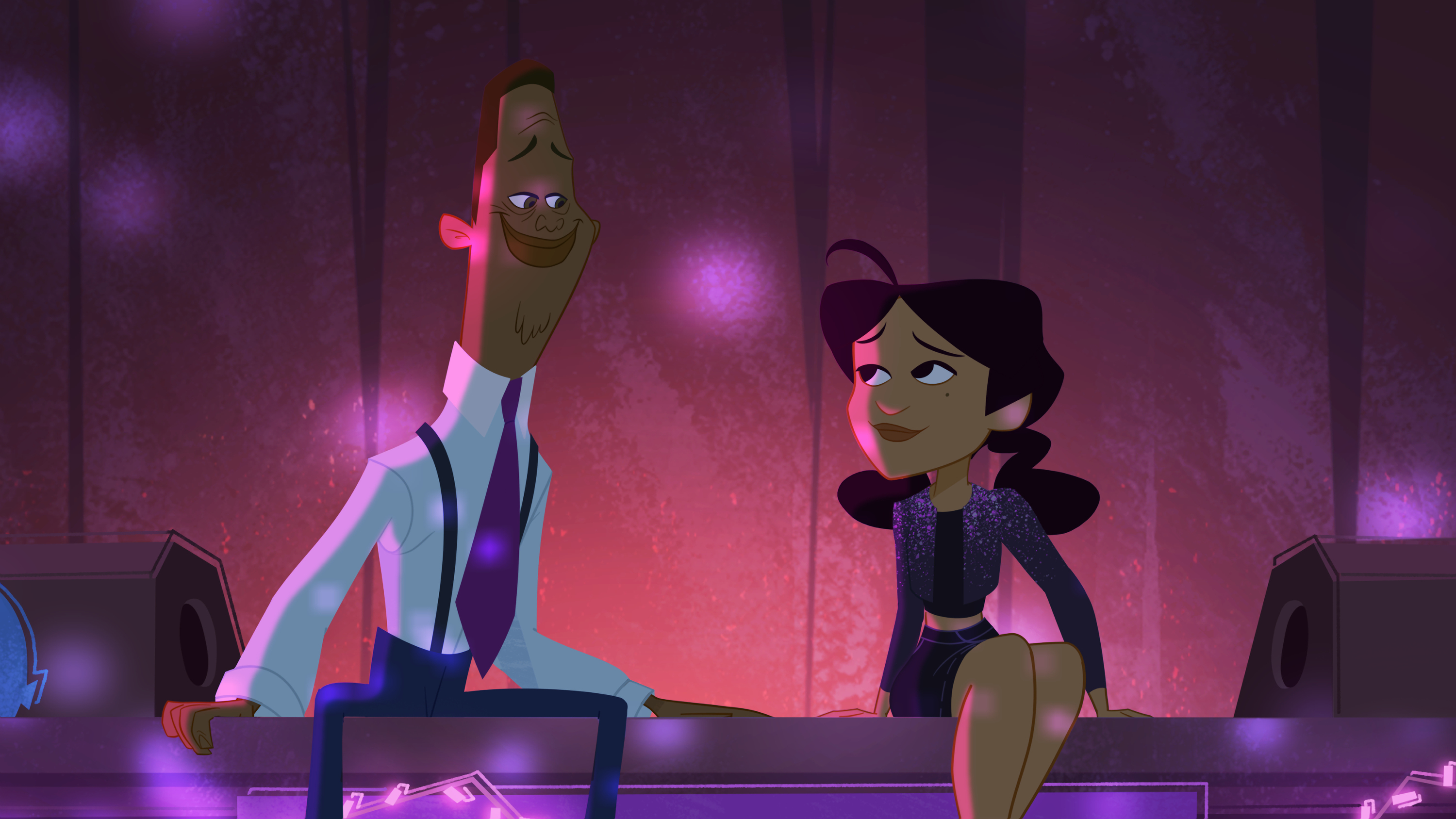
The Proud Family is such an iconic television series. What does it mean to you to be a part of such a historic series, and why do you think it’s vital that this story is told again?
KP: As a young woman and actress, I was fortunate enough to be a part of a fantastic project that people still care about and are still talking about that. Representation is so important. We had all these different characters in The Proud Family, and I believe the show did an amazing job of showing people that we’re all human beings. We’re all trying to figure out this crazy thing called life and just enjoy it. It helped build compassion and empathy for future generations, so being a part of that is special. And having the chance to bring it back and show more representation than we’ve ever had before is thrilling. I’m excited for my kids to see a show of substance like The Proud Family that can give them things that they can relate to and look to if they ever need it.
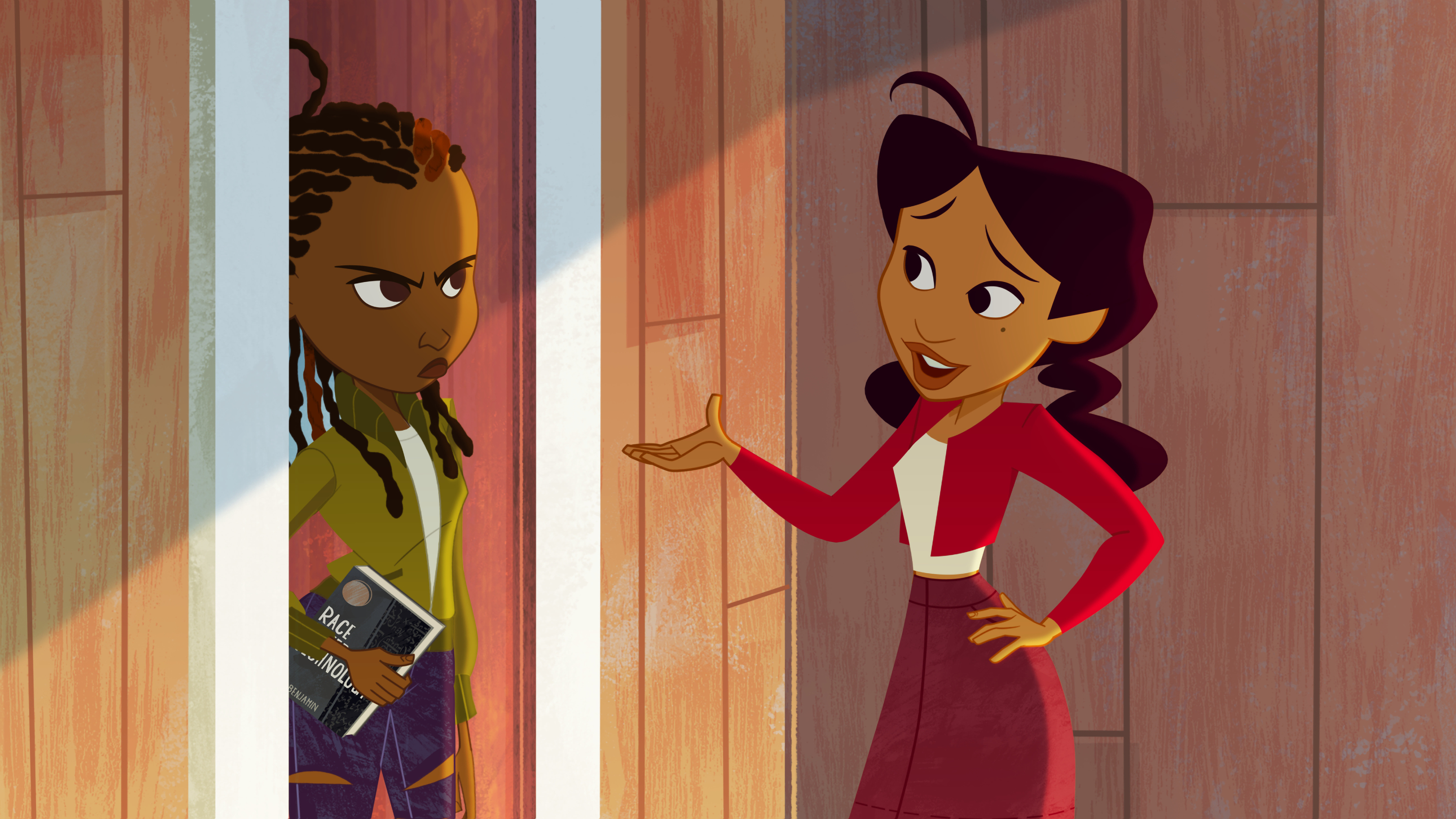
What’s so special about the OG series is that it very much challenged ideas around masculinity, race, and religion. Do you feel like this series is about finding pride in identities that society deems "less than”?
KP: I’ve spoken with Bruce W. Smith and Ralph Farquhar, the show creators, about this, and for them, they’ve always talked about how they wanted to show an unapologetically Black family. They wanted children to be able to turn on a television and see themselves, which, back then, wasn’t really a thing. Being a mother now, I realize that growing up I didn’t have a princess that looked like me or many shows that I could see myself in, so being able to be a part of a project where we’re setting out to show a variety of people is such a fantastic thing. I’m happy I’ve been able to come along for the ride.
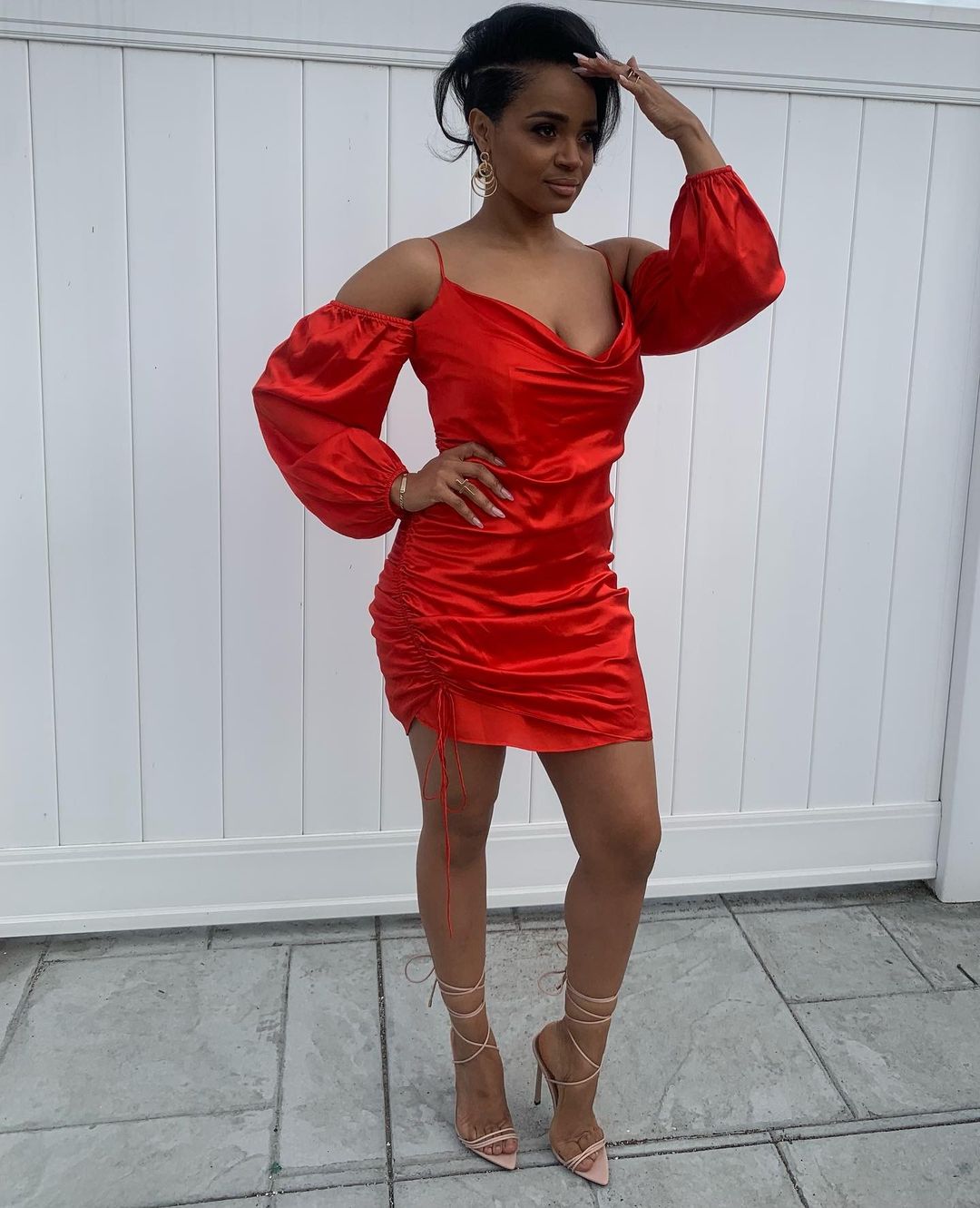
What does being loud and proud mean to you?
KP: If you had told me 20 years ago [that] we’re going to reboot the show and make it louder and prouder, I would have been like, "What are you talking about? We’re already loud and proud.” But now, because of the state of the world today, I see how we can have a few more conversations than we would have been able to have back then. And that’s what I loved about the original Proud Family series—we didn’t shy away from things that other shows would typically shy away from because of the controversy or because they were taboo. And now, with the reboot, I think all of us have gone up a level of loudness, which I didn’t know was possible. But the conversations that we’re having throughout the episodes are very much a reminder that people should be proud of who they are and open to learning about more things and themselves and evolving, because you can still be proud of who you are and still be part of the global movement toward equality.
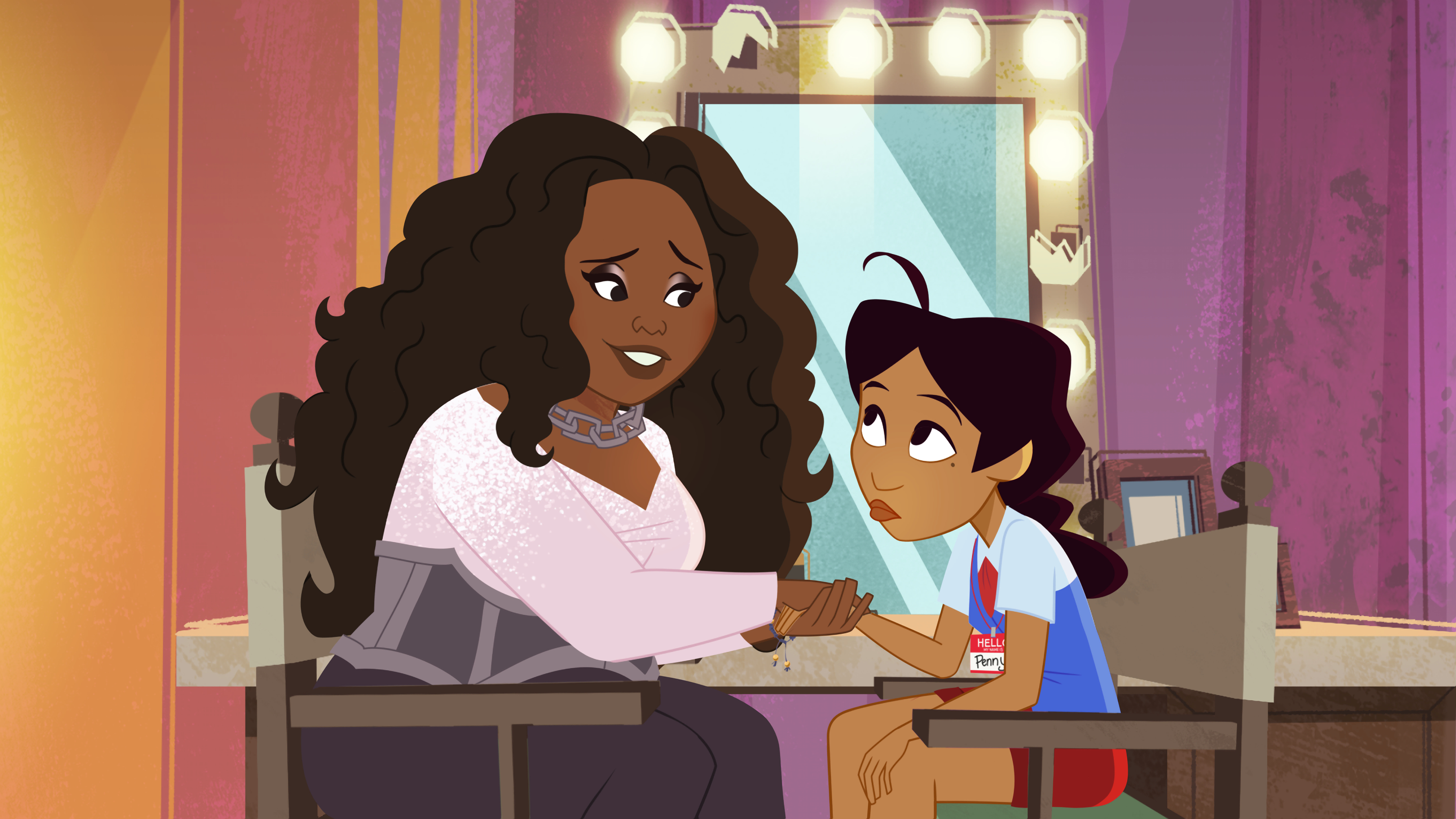
What role do you think the arts can play in helping young people embrace who they are?
KP: I feel like we all have to feed our inner child, and many adults forget to do that as they get older. And for young kids, we should be providing it continuously so they never lose it. Being allowed to be creative—whether it’s creating content, creating films, writing, or it’s fashion design—is so vital. There’s much going on in the world, so much negativity and obligations, but it’s essential to feed your inner child and your inner imagination. I always tell my children that the world would be a sad place without the arts, so if you have to say something, say it loud and proud, and don’t be afraid to use your voice in whatever creative medium works best for you.
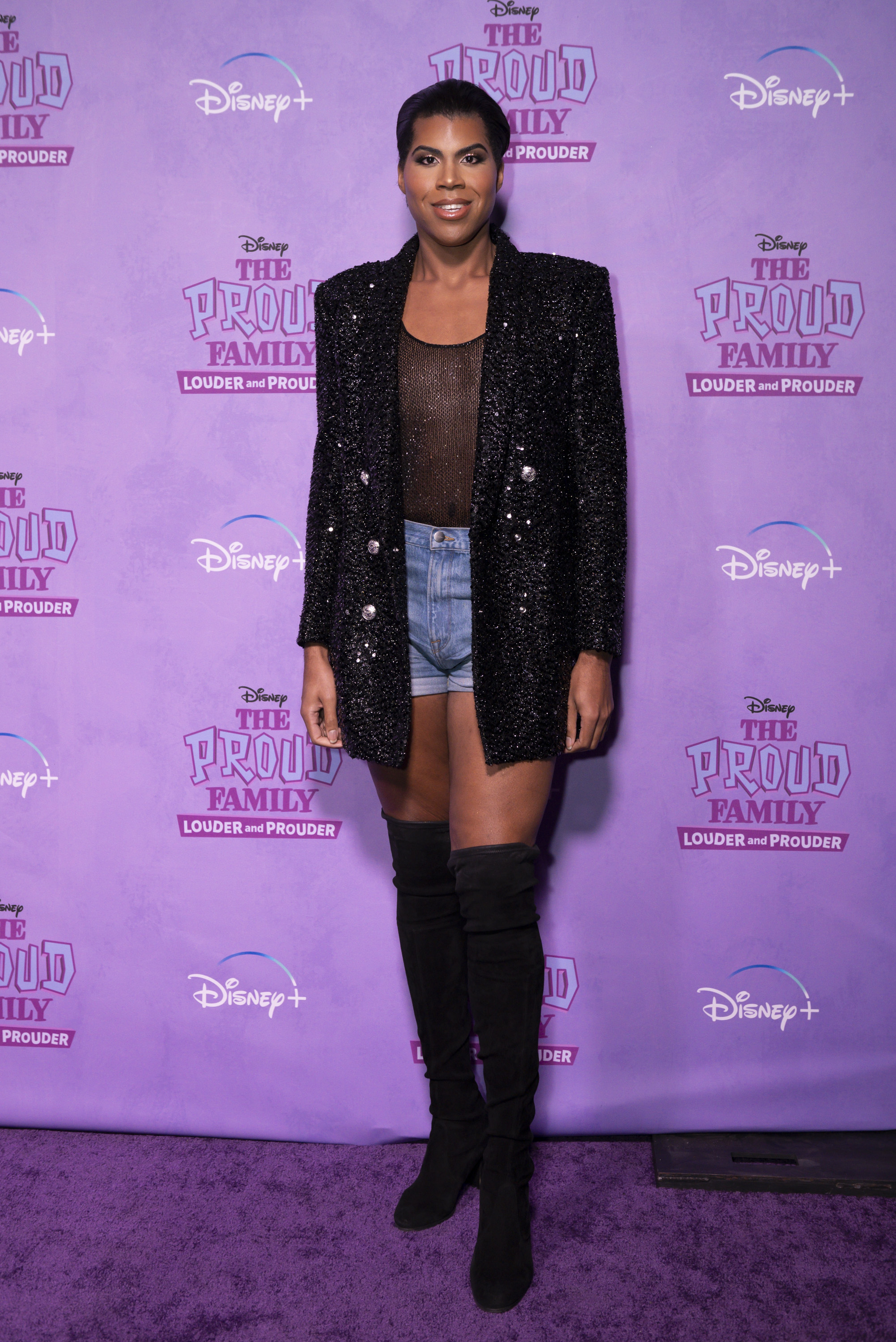
So this is your breakout role, and The Proud Family is such an iconic television series—what does it mean to you to be a part of such a historic series?
EJ Johnson: It’s a huge deal for me. I’ve always dreamed of being an actor. I worked my entire life, took classes, meetings, and put in the work. So to be cast to be a part of such an iconic series is a blessing. I grew up watching it. I was around 8 or 9 years old when the original series came out. And when I was younger, how impactful the show was didn’t fully register, but now as an adult, to bring to life these bigger and louder and more-unapologetic-than-ever characters is genuinely humbling. We’re able to tell more stories now, especially from the lens of the LGBTQ+ community that they … weren’t able to tell before in the original series.
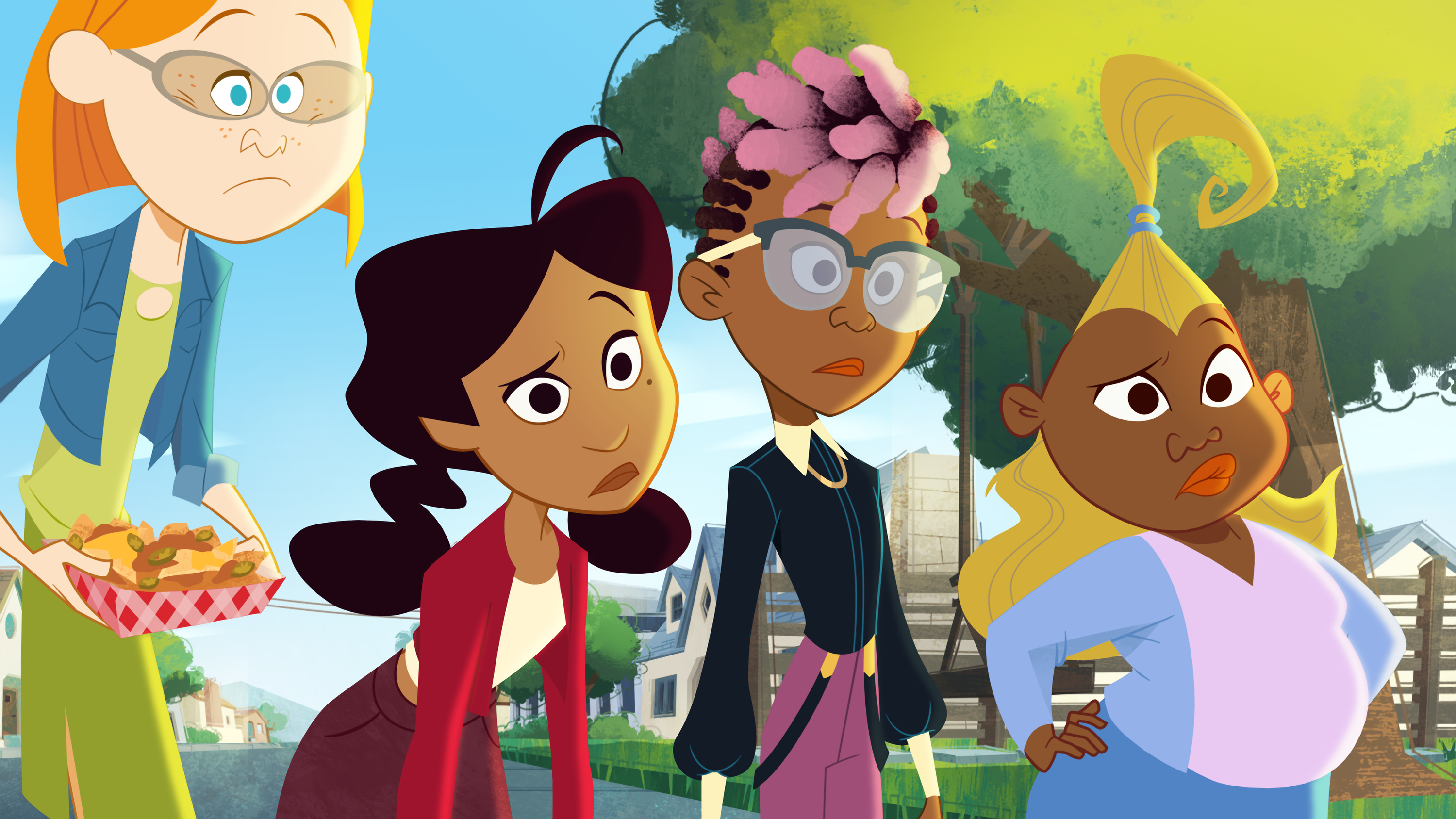
The Proud Family is all about representation, and that’s even clearer with your character Michael Collins. Can you tell us a bit about your role on the reboot, and why is this role important?
EJ: This character is so iconic because this is the first nonbinary character we’re seeing in an animated series. In general, in a lot of ways, I feel similar to this character because we’re both unapologetic in who we are. We’re both living our best lives. We’re both fabulous. We both love fashion. This character is really just sticking it to the girls and providing all the witty one-liners, and it’s just such a thoughtful character. I’m also excited for all the doors this opens for LGBQT+ characters throughout the industry. Growing up, I loved Disney, but I couldn’t see myself represented, and I would have loved to see who I am at my core on-screen. That would have made a big impact on me.
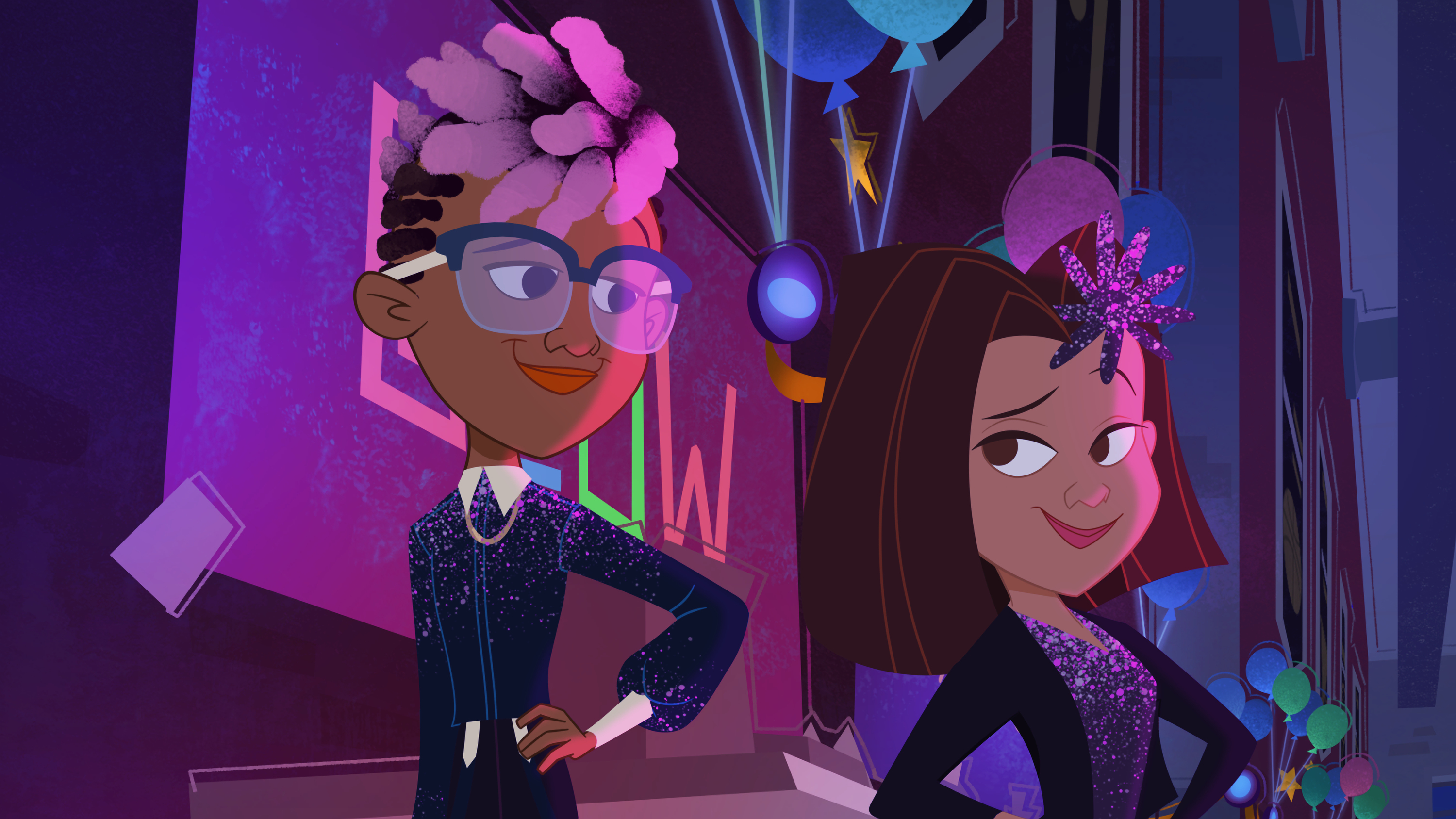
Further expanding upon that, what do you think it would have meant to you to have a character like that on-screen when you were younger?
EJ: I think it would have been great, not only for me but also for my parents. When I was younger, I always wanted to dress up in my skirts and costumes and play with my dolls. But I had to do it in my room when nobody was looking so it wasn’t weird or whatever. But I think if I had, had a show like this when I was younger, it would [have] opened up a conversation and made it normal. I’m grateful for my journey. I’ve come to a place where I wear whatever I want to wear now and express myself in all the ways I want to now. It’s a real testament to my strength and my journey. But I’m grateful to be able to bring to life this character so that I can help others. [It] is remarkable. I think the greatest characters inspire us to embrace our authentic selves.
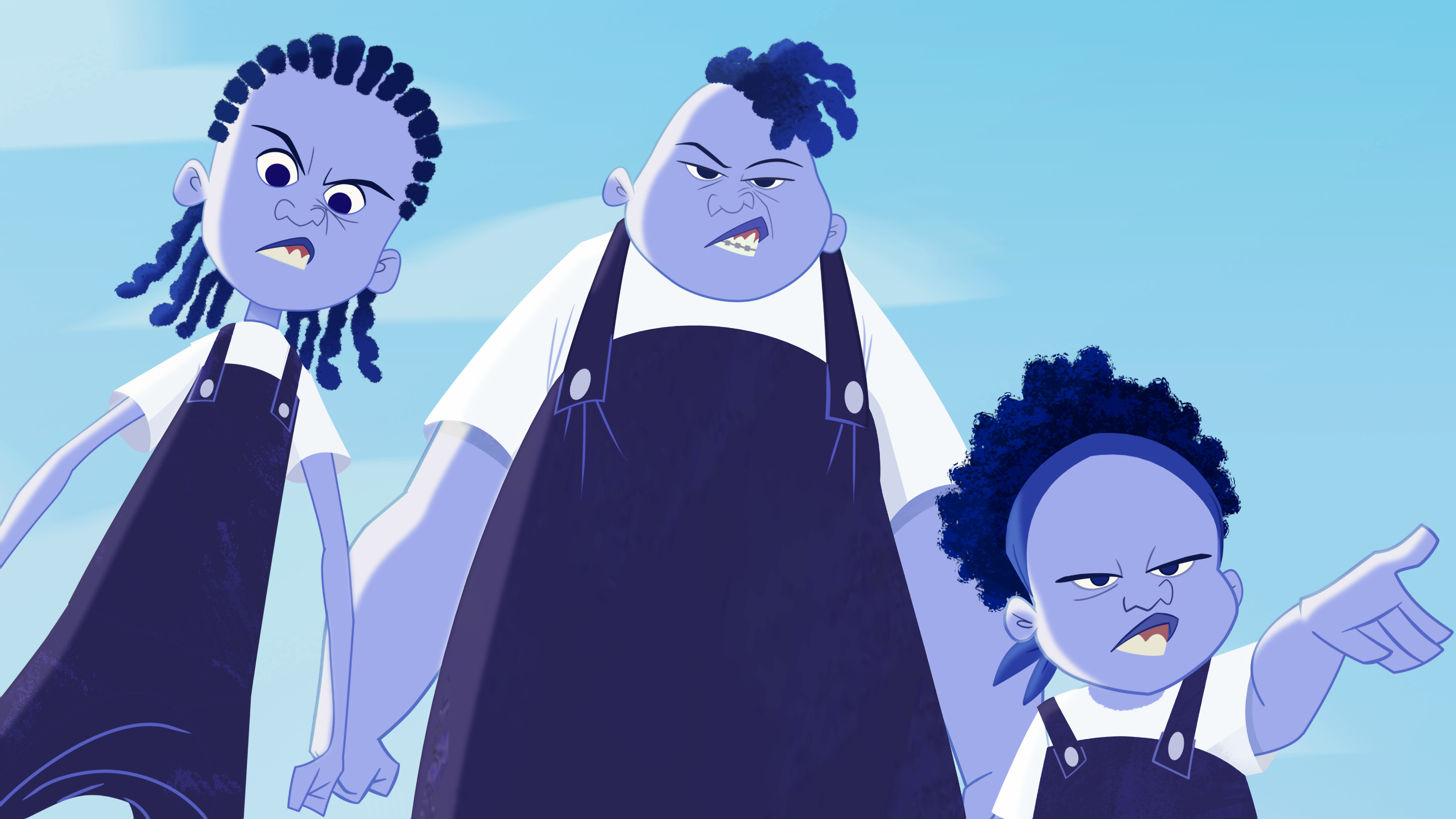
What’s so special about the OG series is that it challenged ideas around masculinity, race, and religion. Do you feel like this series is about finding pride in identities that society deems "less than”?
EJ: Absolutely. … Because it’s a Black show, it’s a reminder to the African American community to just have pride and love yourself. After everything that’s transpired in the last few years, we could use that reminder to be happy and proud, you know? This show isn’t telling trauma for the sake of trauma. We still touch on those issues in the show, but it’s lighter and not heavy. The show does make you want to be proud of who you are no matter who you are, what you look like, or how you identify yourself, so it’s beautiful in that way.
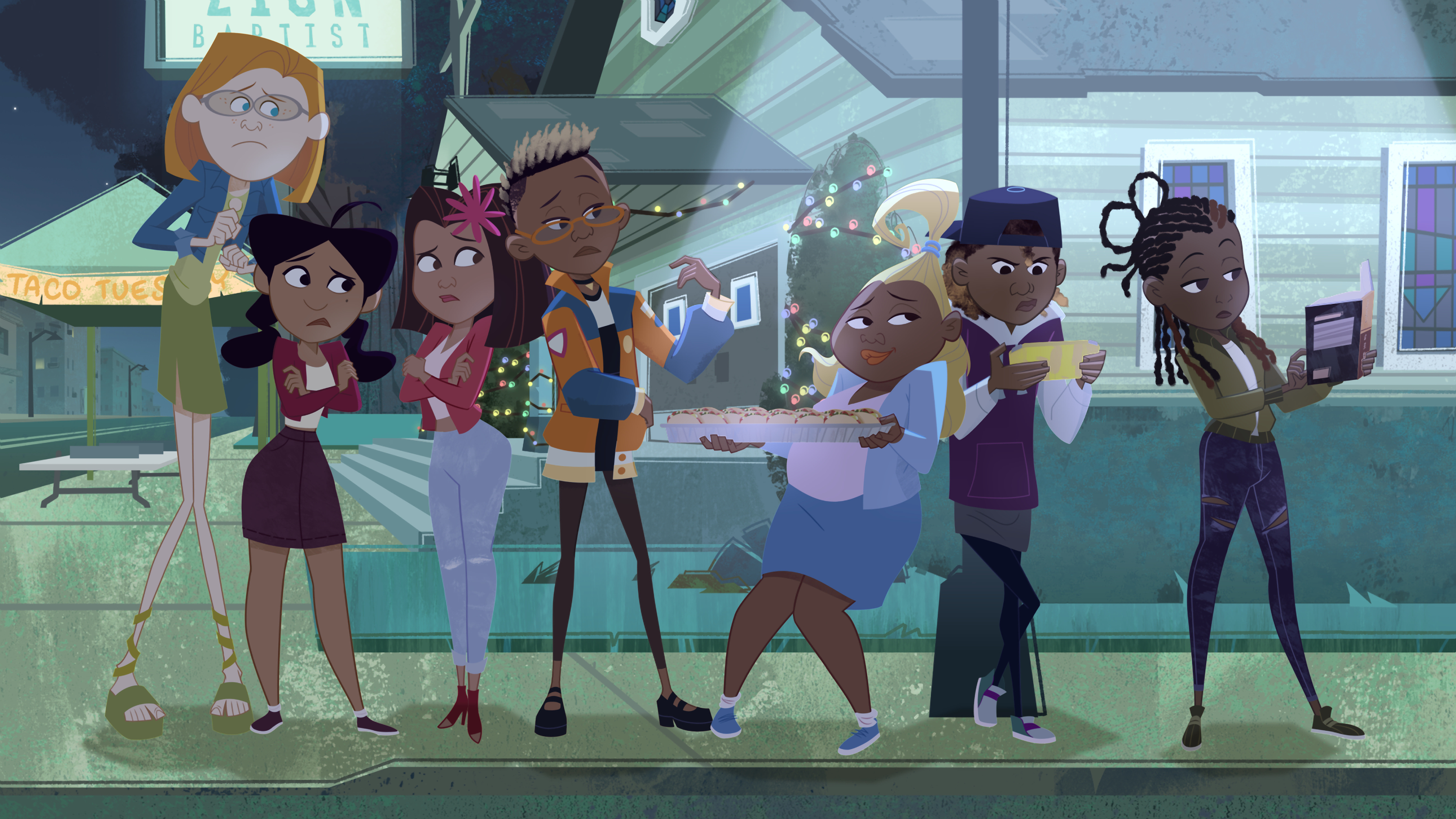
What does being loud and proud mean to you? How does it apply to your personal life?
EJ: Honestly, that phrase is like my life. I am loud and proud and live in my own little world. I’m excited to wake up and be me, shower myself in love every day, and live my life exactly the way I see it. And I just have so much unconditional love for myself and my world and my family and friends, and I hope that more people can get to that point where they fully love themselves. People come up to me and say, "Oh, you’re so bold. Please don’t ever change.” And I’m like, "Honey, there’s no way I’m ever going to change unless it’s for the better.” But for me, being loud and proud is just being myself. And I’m so glad I can put a part of myself into this character. I hope it will remind people to shower themselves with that kind of love and help everybody live a little louder and prouder every day.
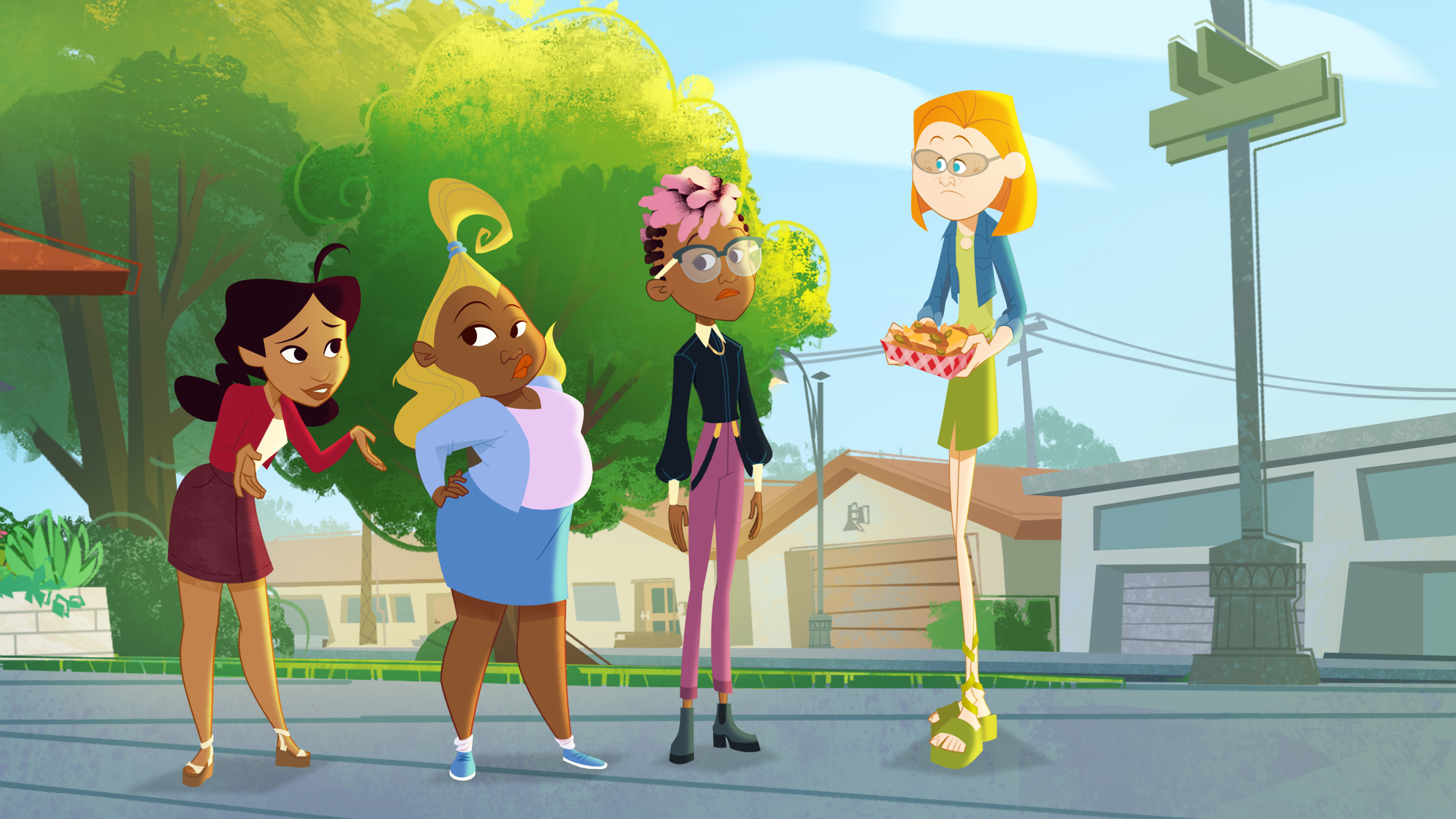
You’re a voice actor, so how have you cultivated your inner voice? How do you know when to shower yourself with more love?
EJ: I just learned to trust myself and to have the ultimate trust in me. And the power of discernment comes with it. On this journey, I’ve learned the importance of using my voice to say no, even when I was afraid to. I’ve learned that when one door closes or somebody leaves because I’ve spoken my truth, something bigger and better always comes through. Many people are scared to set up those boundaries, and they’re scared to close those doors or walk away from something that’s not serving them, but if you’re in situations where your energy is getting drained every day, you have to put yourself first. People will be like, "I don’t want to do this job” or "I need to get out of this relationship,” and they just sit quietly and hope it will get better or that something will take them out of it. But you can just end it now. You can open your mouth and make a change. I’ve just gotten more unapologetic over the years for speaking up for myself and setting boundaries. You have to listen to your inner voice and use it because that’s the only way you can love and honor yourself.
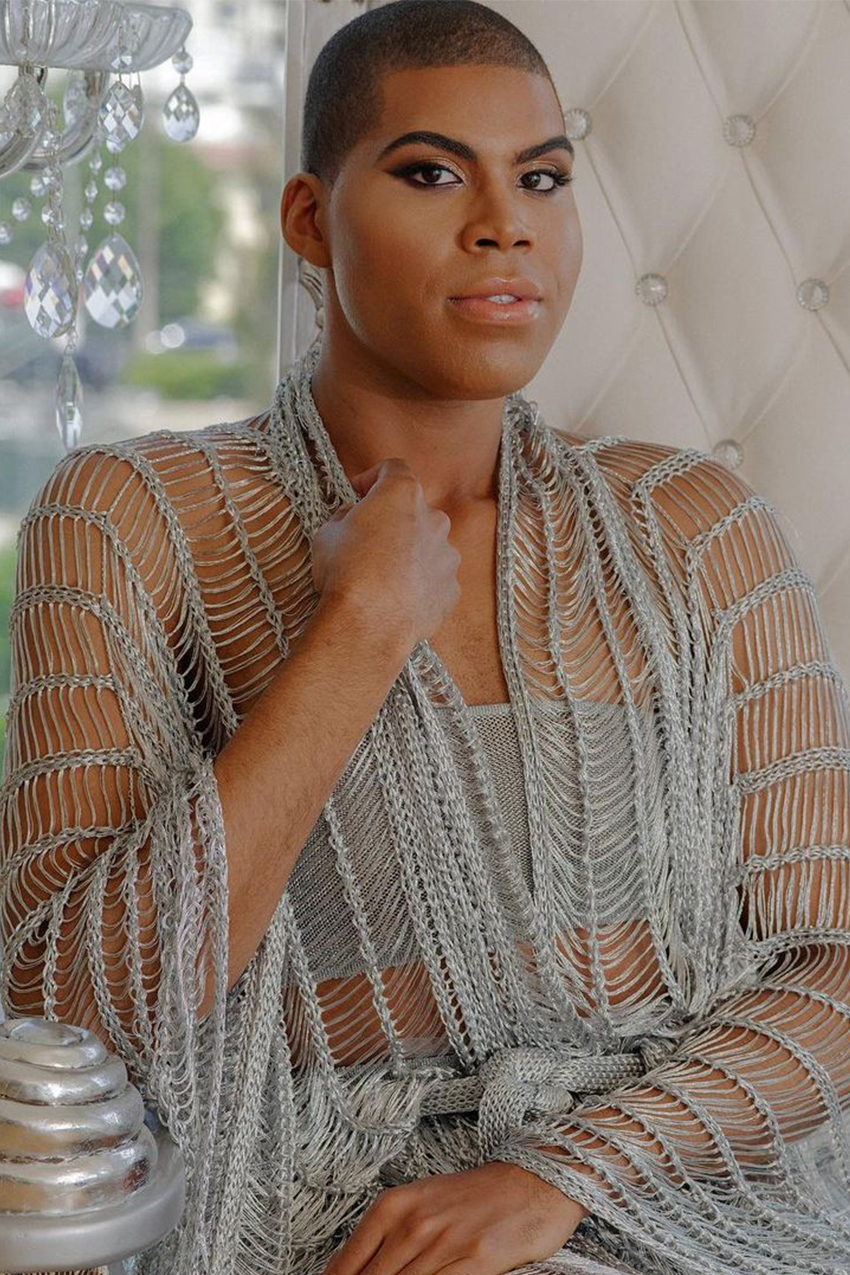
What role do you think the arts can play in helping young people embrace who they are?
EJ: The arts are very pivotal for embracing who you are. It helped me embrace who I am. My parents had to put me in sports in my childhood, and I couldn’t tell you how miserable I was. But when I was about 9 years old, my mom was like, "Okay, he’s miserable. We have to do something.” So she put me in acting classes, and it immediately opened my eyes and mind, and it built up my confidence. Young people need to find their voice, funnel it into something, and see where it takes them. For me, it was always fashion and acting—those two art forms were my loves and continue to be. But it’s so crucial to find which ones work for you. If you’re an artist, you must create. You have to do it because that’s where happiness comes from, in my experience.
Next: Hot Take: These 7 TV and Film Performances Are Not to Be Missed
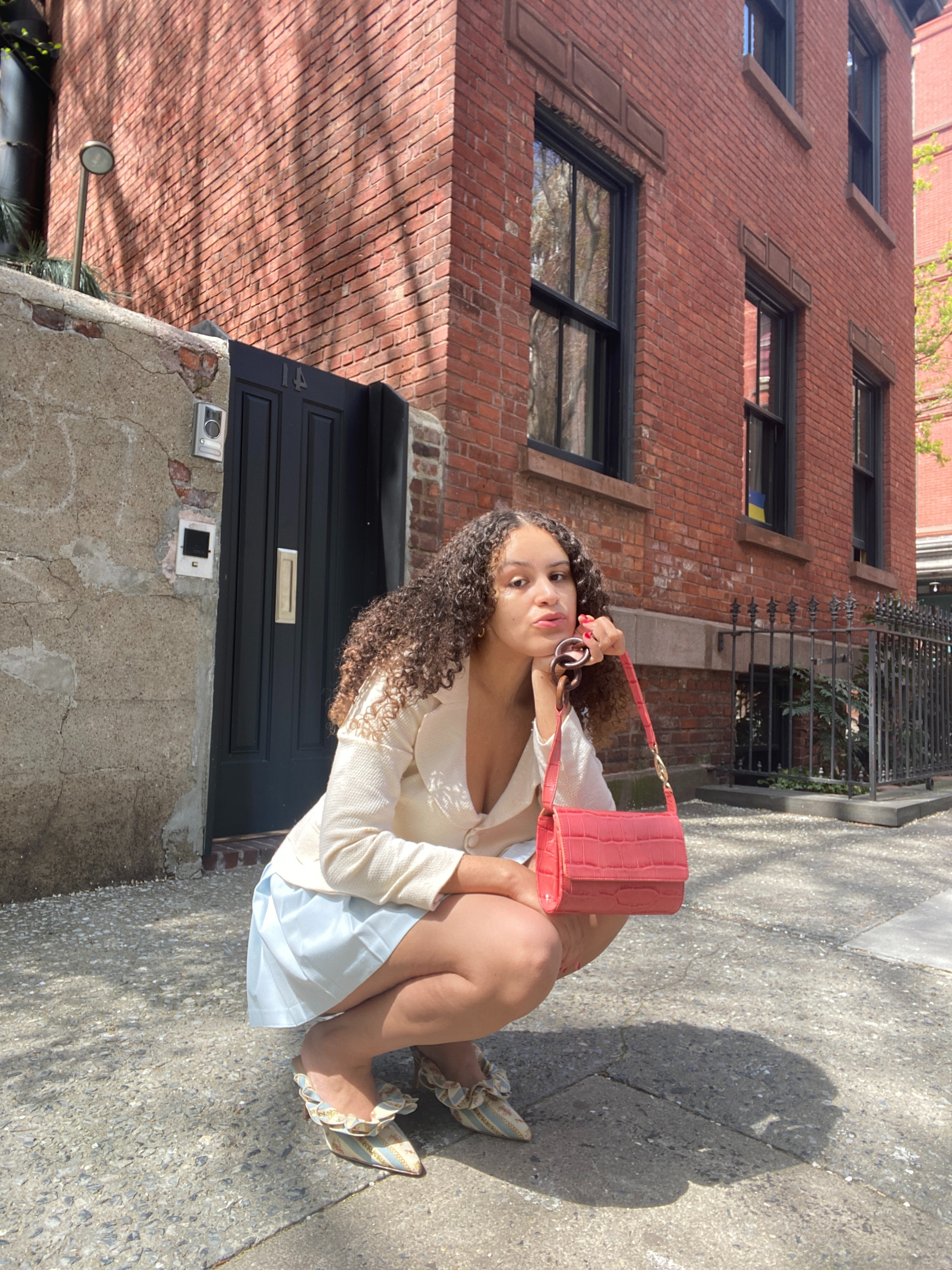
Jasmine Fox-Suliaman is a freelance writer and editor living in New York City. What began as a pastime (blogging on Tumblr) transformed into a lifelong passion for unveiling the connection between fashion and culture on the internet and in real life. Over the last decade, she's melded her extensive edit and social background to various on-staff positions at Who What Wear, MyDomaine, and Byrdie. More recently, she’s become a freelance contributor to other publications including Vogue, Editorialist, and The Cut. Off the clock, you can find her clutching her cell phone as she's constantly scrolling through TikTok and The RealReal, in search of the next cool thing.